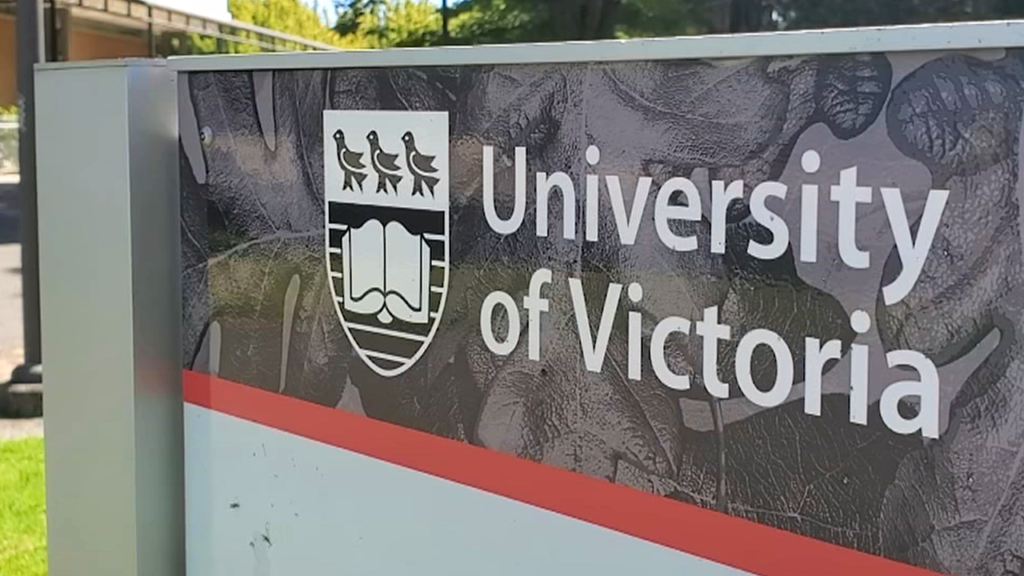
Post-secondary institutions in British Columbia continue to be discouraged from issuing their own COVID-19 exposure notifications by public health officials, despite recent clusters at a university on Vancouver Island.
During a recent post-secondary virtual town hall event, deputy provincial health officer Réka Gustafson said the reason for discouragement is because there are “unintended consequences” of informing those who might not have been potentially exposed to the virus.
“You know, the stigma that’s associated with it or having people take actions that they didn’t need to take, like staying away from school or staying away from class, when they really didn’t need to do that,” she said during the event, which was hosted by the University of the Fraser Valley (UFV) with representatives from the BCCDC and office of the provincial health officer.
“That’s the reason that we do make sure that it’s a well-developed and public health driven practice so that the right people are informed at the right time to take actions that they need to take.”
READ MORE: Petition demands B.C. notify public of COVID-19 exposures, outbreaks at post-secondary institutions
Documents on the BC Centre for Disease Control (BCCDC) website, last updated on Nov. 10, direct post-secondary administration not to issue notifications unless public health officials request it.
“Since COVID-19 transmission is uncommon in educational settings, in most cases, public health notifications to the campus community will not be required,” reads a paragraph in the Return to Campus Public Health Guidance document. “Please do not notify faculty, staff, or students about potential or confirmed communicable disease cases (including COVID-19) unless requested to do so by the local Medical Health Officer.”
According to Gustafson, people aren’t encouraged to do their own contact tracing because it’s the result of medical and public health assessment, which is an area of specialty practice.
“It really does rely on that careful assessment,” she said, adding there are times when employers — or post-secondary administrators in this case — are involved at the request of public health.
Gustafson also said isolating has a “significant impact” on people, which is why public health teams are so cautious when it comes to notifying individuals about potential exposure.
“Isolating has a significant impact on people. The intervention that comes from contact tracing actually has a significant impact on people. So we’re very careful about determining who needs to be notified and what is the information that they need to do to take the measures to protect their friends and their family.”
About 30 COVID-19 cases confirmed at the University of Victoria
Gustafson’s comments come as the University of Victoria (UVic) experiences a couple clusters of COVID-19 cases after students from the business school and varsity programs attended two off-campus social gatherings last weekend.
Following the guidelines in the BCCDC document, UVic did not initially post a public notification about the increase in cases. Instead, the dean of the university’s business school sent out a letter to the affected students, notifying them of the positive cases while Island Health conducted the contact tracing process.
After CHEK News published a story on the spike in cases on Thursday, UVic posted a notice to its website that night alerting the campus community to the cases and its mitigation efforts.
Island Health confirmed there was no outbreak and did not initially disclose the specific number of cases, citing respect for patient privacy.
READ MORE: University of Victoria no longer holding exams in person amid two COVID-19 clusters
But on Friday, the health authority’s chief medical health officer Richard Stanwick revealed there were about 30 confirmed cases, with additional individuals being tested for the virus.
“We are designating this thing as if it’s two different parties — as two distinct clusters — and not calling it an outbreak,” he said. “We, at the direction of BCCDC, reserve the term outbreak for situations which often can be contained [when] we can put measures in place, because that can stop the spread within that specific locale.”
In this case, Stanwick explained, it’s considered a cluster because people came together, then went back to their own residences.
Stanwick said on Friday they’re dealing with a highly vaccinated population and he isn’t aware of any hospitalizations related to the UVic clusters.
“The most important thing is that these students who likely participated in these events, from what we’ve seen to date, are fully vaccinated,” he said. “And we know fully vaccinated individuals significantly reduce the risk of having a bad outcome.”
When it comes to which variant of the virus the UVic cases are, Stanwick said the cases so far are all of the delta variant. He added if any cases of the Omicron variant are identified, public health officials will share that information.
The University of Victoria is no longer holding in-person exams due to the rising number of cases, and will be offering assessments online or in another format.




